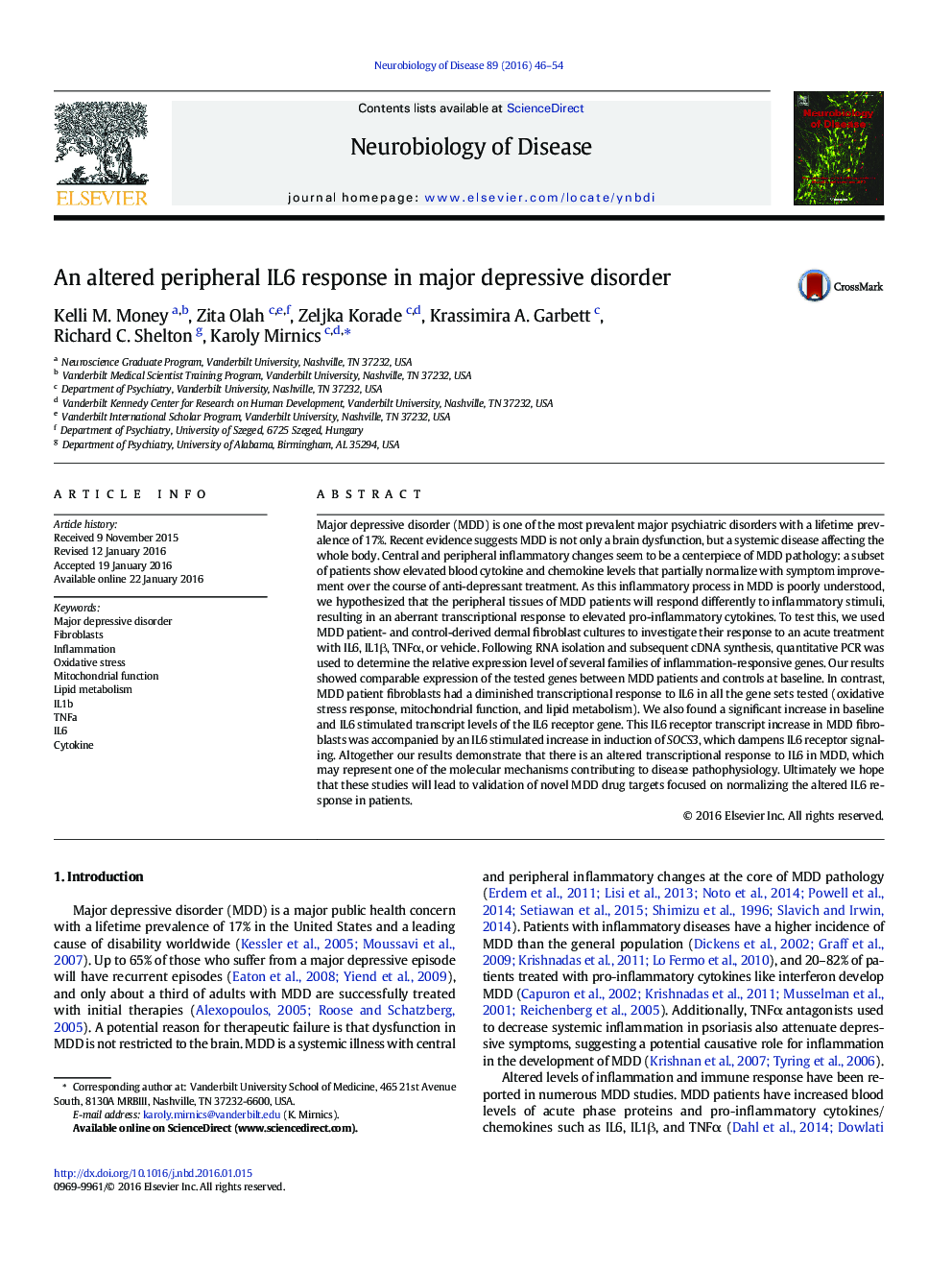| کد مقاله | کد نشریه | سال انتشار | مقاله انگلیسی | نسخه تمام متن |
|---|---|---|---|---|
| 6021410 | 1580634 | 2016 | 9 صفحه PDF | دانلود رایگان |

- HDFs express genes altered in blood cells and neural tissue of patients with MDD.
- MDD patients have a blunted transcriptional response to IL6 but not IL1β or TNFα.
- The IL6 signaling suppressor SOCS3 is induced by IL6 in MDD but not controls.
- Altered SOCS3 levels might be critical for the blunted IL6 response in MDD.
Major depressive disorder (MDD) is one of the most prevalent major psychiatric disorders with a lifetime prevalence of 17%. Recent evidence suggests MDD is not only a brain dysfunction, but a systemic disease affecting the whole body. Central and peripheral inflammatory changes seem to be a centerpiece of MDD pathology: a subset of patients show elevated blood cytokine and chemokine levels that partially normalize with symptom improvement over the course of anti-depressant treatment. As this inflammatory process in MDD is poorly understood, we hypothesized that the peripheral tissues of MDD patients will respond differently to inflammatory stimuli, resulting in an aberrant transcriptional response to elevated pro-inflammatory cytokines. To test this, we used MDD patient- and control-derived dermal fibroblast cultures to investigate their response to an acute treatment with IL6, IL1β, TNFα, or vehicle. Following RNA isolation and subsequent cDNA synthesis, quantitative PCR was used to determine the relative expression level of several families of inflammation-responsive genes. Our results showed comparable expression of the tested genes between MDD patients and controls at baseline. In contrast, MDD patient fibroblasts had a diminished transcriptional response to IL6 in all the gene sets tested (oxidative stress response, mitochondrial function, and lipid metabolism). We also found a significant increase in baseline and IL6 stimulated transcript levels of the IL6 receptor gene. This IL6 receptor transcript increase in MDD fibroblasts was accompanied by an IL6 stimulated increase in induction of SOCS3, which dampens IL6 receptor signaling. Altogether our results demonstrate that there is an altered transcriptional response to IL6 in MDD, which may represent one of the molecular mechanisms contributing to disease pathophysiology. Ultimately we hope that these studies will lead to validation of novel MDD drug targets focused on normalizing the altered IL6 response in patients.
Journal: Neurobiology of Disease - Volume 89, May 2016, Pages 46-54